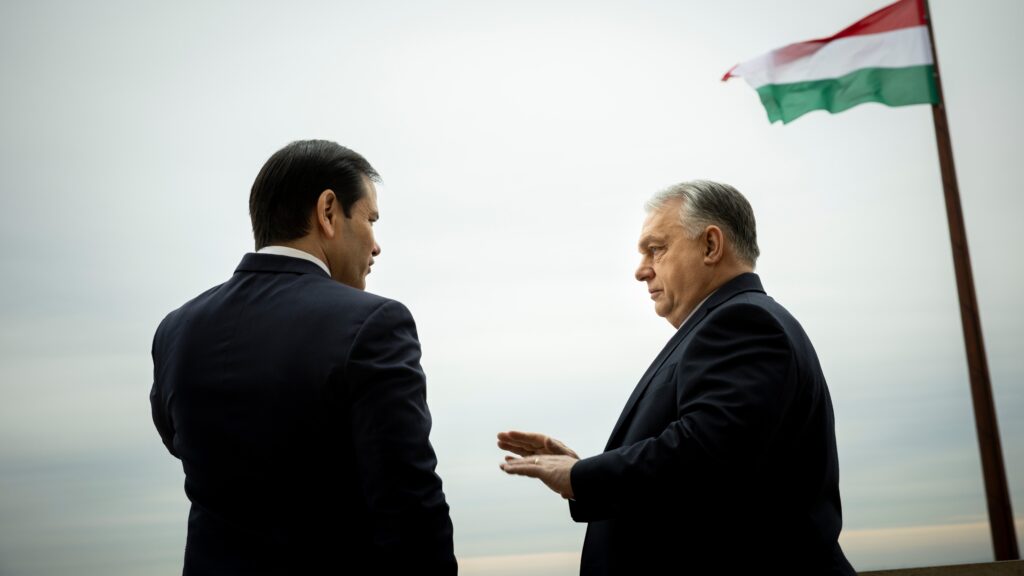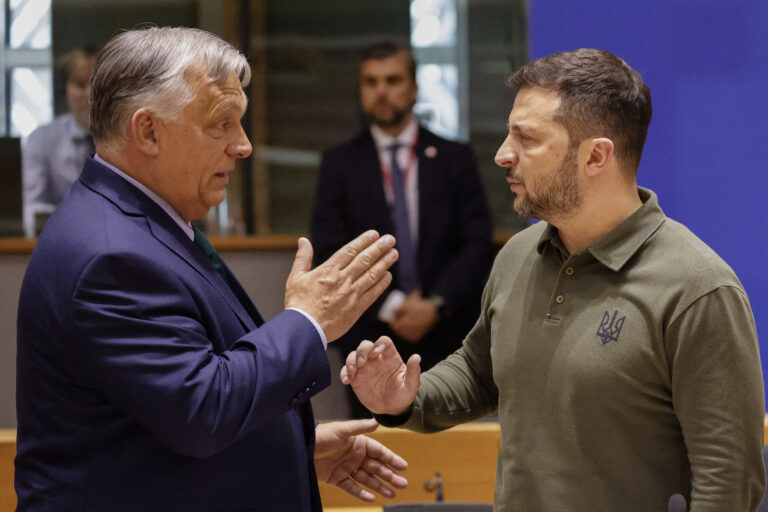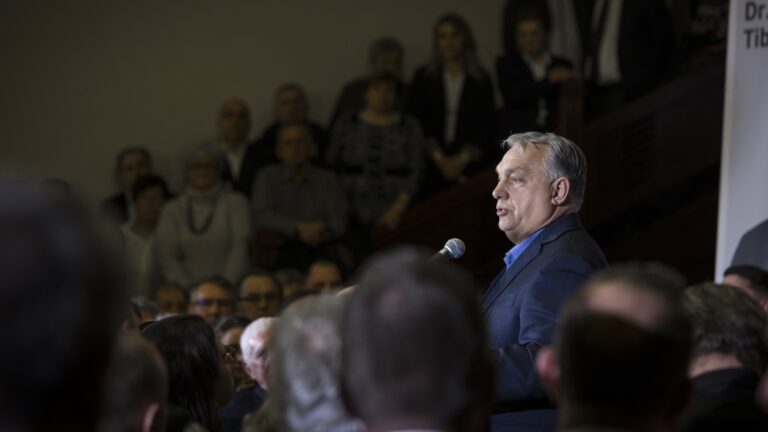Be it diplomatic, trade, business, defence, energy, or education fields, Hungarian–Uzbek relations flourish in all spheres. Uzbekistan’s expanding consumer market and strategic location at the heart of Central Asia make it a vital partner for Hungary’s regional interests.
Under the leadership of Prime Minister Viktor Orbán and President Shavkat Mirziyoyev, a strong foundation of mutual trust has emerged, elevating bilateral ties to new heights. This trust culminated in the establishment of a strategic partnership during Prime Minister Orbán’s official visit to Uzbekistan on 29 March 2021. The upcoming visit of President Mirziyoyev to Budapest, on the occasion of the first-ever informal summit of the Organization of Turkic States (OTS) to be held in Hungary, is expected to yield even greater outcomes, paving the way toward an enhanced strategic partnership.
Since gaining independence, Uzbekistan has counted Hungary among its most dynamic and reliable partners in the West. Hungary was one of the first countries to recognize Uzbekistan’s sovereignty, and the relations have deepened considerably in recent years. Hungary’s acquisition of observer status and Uzbekistan’s full membership in the OTS have further accelerated cooperation, strengthening the institutional and diplomatic bonds between the two nations.
‘Given the growing Uzbek consumer market and suitable conditions, Hungarian businesses thrive in Uzbekistan’
Trade figures illustrate this growing momentum. Since the launch of Hungary’s Eastern Opening policy, bilateral trade with Uzbekistan has quadrupled over the past 13 years. Remarkably, two-thirds of this growth has occurred since 2018, when both countries intensified their cooperation within the OTS framework. Between 2018 and 2023 alone, trade volume tripled, underscoring the tangible impact of strategic alignment and institutional engagement. Given the growing Uzbek consumer market and suitable conditions, Hungarian businesses thrive in Uzbekistan.
Being one of the two Central Asian giants, Uzbekistan accounts for nearly 46 per cent of the region’s total population. With the highest fertility rate in Central Asia—a region that already exceeds the global average—Uzbekistan is poised for continued rapid population growth in the coming decades. This demographic momentum positions the country as an increasingly attractive consumer market for Hungarian products.
At the same time, Uzbekistan’s expanding working-age population offers great potential for further industrialization and high value-added production, an area where Hungarian pharmaceutical expertise can play a pivotal role. Such collaboration not only strengthens Hungary’s industrial footprint but also contributes to Uzbekistan’s economic diversification and competitiveness on the global stage.
On 7 May 2024, three major events took place in Tashkent, reflecting the deepening partnership between the two countries. The day began with a meeting between Hungarian Minister of Foreign Affairs and Trade Péter Szijjártó and Uzbek President Shavkat Mirziyoyev. This was followed by the 9th session of the Hungarian–Uzbek Intergovernmental Commission, co-chaired by Uzbekistan’s Minister for Investment, Industry and Trade Laziz Kudratov and Minister Szijjártó. The day concluded with the Hungarian–Uzbek Business Forum, attended by executives from 29 Hungarian companies spanning sectors such as agriculture, food industry, energy, construction, chemicals, and pharmaceuticals. Over 200 participants, including business leaders, ministry officials, and experts, took part in the forum.
This growing economic engagement has led to a notable expansion of Hungarian corporate presence in Uzbekistan. A landmark example is the acquisition by OTP Bank of a 73.71 per cent majority stake in Ipoteka Bank, Uzbekistan’s fifth-largest bank, in December 2021. Formerly under the control of the Uzbek Ministry of Economy and Finance, Ipoteka Bank now represents a key Hungarian foothold in the region’s financial sector. Collectively, investments by Hungarian firms such as OTP Group, Joyson Safety Systems, and Bonafarm now total nearly USD 500 million in Uzbekistan.
The previous year’s Business Forum in Tashkent further cemented these ties through 137 business-to-business (B2B) and government-to-business (G2B) meetings, covering areas such as banking, agriculture, logistics, mechanical engineering, pharmaceuticals, and water management. Cooperation has also extended into the leather industry, with the involvement of the Association of Hungarian Light Industry (AHLI), a member of the European Confederation of Clothing and Textiles since 2004. One initiative envisions the partial outsourcing of Hungary’s textile, leather, clothing, and footwear industries to Uzbekistan, aligning with the country’s ambitions to scale up these sectors. Notably, Uzbekistan’s leather and footwear industry has surged in value from USD 90 million to USD 450 million, a trend that shows no signs of slowing.
Looking ahead, the planned establishment of a Special Economic Zone (SEZ) in Tashkent marks another significant milestone. This 50-hectare SEZ will be dedicated to Hungarian and European companies, serving as a vital platform for enhancing bilateral trade and investment under the banner of Hungary’s Eastern Opening policy. The project underscores Hungary’s long-term commitment to deeper regional engagement and economic integration.
One of the key outcomes of the May 2024 events was the agreement to set up an office for the Central Asian Direct Investment Fund (CADIF), initiated by the Hungarian side to streamline cooperation and boost Hungarian corporate activity in the region. During the Business Forum, Minister Szijjártó announced Hungary’s readiness to triple CADIF funding from USD 50 million to USD 150 million, reinforcing Budapest’s intent to support the development of Hungarian businesses within the anticipated SEZ and beyond.
Hungarian–Uzbek cooperation not only strengthens economic ties but also fosters the exchange of 'know-how' on the path to higher value-added production. As highlighted earlier in this article, Hungarian companies are steadily expanding their footprint in Uzbekistan, supported by a favourable and business-friendly environment fostered by the country’s current leadership. This deepening cooperation extends beyond mere economic gains—it also drives the transfer of critical ‘know-how’ that is essential for advancing higher value-added production. This knowledge-based collaboration is not only pivotal for boosting bilateral trade but also plays a transformative role in the broader economic development of Central Asia. Hungary, with its established expertise in innovation and industry, has proven to be a trusted partner in this strategic process. One notable example of this cooperation is emerging in the pharmaceutical sector.
‘Hungarian–Uzbek cooperation not only strengthens economic ties but also fosters the exchange of “know-how” on the path to higher value-added production’
According to Világgazdaság, citing Dean of the University of Debrecen Ildikó Bácskay, the university has embarked on a significant pharmaceutical research and development project with Uzbekistan. The initiative focuses on utilizing an anti-malarial compound, an active ingredient awarded the Nobel Prize in Physiology or Medicine in 2015 and now widely used in cancer therapies. This compound has recently become central to a joint Hungarian–Uzbek R&D&I (Research, Development & Innovation) project.
The partnership aims to develop a range of innovative medical products, including antiseptic and anti-inflammatory lozenges, hard capsules, hydrogels, ointments, ear drops, mouthwashes, and refillable patches designed for treating ulcers and large wounds. These products are being developed not as pharmaceuticals, but as medical devices and nutritional supplements, allowing for a more streamlined regulatory process and faster market entry. Once testing phases are completed, the production of these items is planned to take place in Uzbekistan.
The key stakeholders in this project are the Tashkent Pharmaceutical Institute and Hungary’s MEDITOP Pharmaceuticals Ltd, which opened a representative office in Uzbekistan in 2023. This initiative exemplifies the growing strategic partnership established between Hungary and Uzbekistan in 2021, one that continues to deepen as tangible projects like this come to life.
The commitment to expanding cooperation was underscored during a recent bilateral meeting, where both sides expressed interest in further increasing regional presence and exploring opportunities for the local production of select medicines.
Beyond MEDITOP, pharmaceutical collaboration continues to thrive between the two nations. In 2023 Hungary’s Egis Pharmaceuticals PLC signed a cooperation agreement with Uzbekistan’s pharmaceutical regulatory authority. This agreement targets the improvement of regulatory standards and aims to address long-standing quality issues in Uzbekistan’s pharmaceutical market. It also includes plans for regular professional exchanges to enhance the expertise of regulatory staff and elevate local production standards.
Overall, the Hungarian–Uzbek pharmaceutical partnership illustrates a broader vision—where economic cooperation goes hand in hand with knowledge sharing, capacity building, and long-term regional development. As this collaboration matures, it sets a strong precedent for future high-value partnerships in other strategic sectors.
Another crucial area of emerging cooperation is the energy sector, where Hungary’s expertise in nuclear cooling technology and Uzbekistan’s advancements in green energy create a strong foundation for mutually beneficial exchange, offering technological support for Uzbekistan and enhanced energy security for Hungary.
Atomic Energy
The visit of Hungarian Minister of Foreign Affairs and Trade Péter Szijjártó to Tashkent in 2024 marked a significant milestone in the deepening strategic partnership between Hungary and Uzbekistan. One of the most notable developments was the announcement of Hungarian–Uzbek cooperation in the field of atomic energy. Minister Szijjártó revealed that Hungary would support Uzbekistan in developing its nuclear energy capabilities by training Uzbek personnel and potentially sharing Hungary’s advanced expertise in nuclear cooling systems.
This partnership could evolve further if Uzbekistan finalizes a contract with Russia's Rosatom to construct a new nuclear power plant. In such a scenario, Hungary would contribute its technical know-how in cooling technology, with the potential contract value estimated to exceed USD 100 million, making it one of Hungary’s most significant energy export deals to date.
Uzbekistan's pursuit of nuclear energy is guided by its ‘Concept Note for Ensuring Electricity Supply in Uzbekistan for 2020–2030’, introduced by the Ministry of Energy in 2020. This roadmap targets the development of 2.4 GW of nuclear power capacity by 2030, projected to comprise 8.3 per cent of the country’s total electricity production. This initiative not only aims to address rising domestic energy demand but also aligns with Uzbekistan’s broader transition to a Green Economy.
Green Energy
Beyond nuclear energy, Hungary is playing an increasingly central role in an ambitious regional effort to export green energy from Central Asia to Europe. A major highlight of this strategy is the plan to construct a high-voltage electric cable under the Caspian and Black Seas, connecting energy-rich countries such as Uzbekistan, Kazakhstan, and Azerbaijan to Europe, via Hungary.
Hungary’s geographic location in Central Europe and its designation as the final destination for this transcontinental energy corridor positions it as a critical transit hub for renewable energy distribution across the EU.
This vision has been steadily advancing. In December 2022, the leaders of Azerbaijan, Georgia, Romania, and Hungary met in Bucharest, where they signed an agreement to build a high-voltage electric cable linking Azerbaijan to Romania via Georgia and the Black Sea, with Hungary as the endpoint. European Commission President Ursula von der Leyen also attended the signing ceremony, emphasizing the project’s importance in diversifying the EU’s energy sources and reducing dependency on Russian gas.
‘Hungary’s geographic location in Central Europe...positions it as a critical transit hub for renewable energy distribution across the EU’
Momentum continued to build in November 2023, when Azerbaijan, Kazakhstan, and Uzbekistan signed a joint communiqué in Baku outlining plans to establish a joint venture for green energy exports to Europe. This collaboration advanced further in May 2024 during the Tashkent International Investment Forum, where the three countries' energy ministers signed a memorandum of cooperation. The agreement envisions merging their energy systems and constructing a high-voltage cable through the Caspian Sea to connect with the Black Sea undersea cable, making Uzbekistan and Kazakhstan key starting points, Azerbaijan key transit point and Hungary a key hub for further supply in Central and Eastern Europe.
Hungary has proactively cultivated strong energy partnerships with Kazakhstan, Azerbaijan, and Uzbekistan, recognizing the strategic potential of acting as a bridge between energy producers in Central Asia and Azerbaijan with energy consumers in the Europe.
As the European Union and the Turkic world steadily evolve into natural economic allies, Hungary’s role in this process is becoming increasingly pivotal. Thanks to the trust it has earned as a reliable partner in the region, Hungary is well-positioned to act as a bridge between the two blocs. Hungarian–Uzbek relations are flourishing, with both nations serving as keystone states within their respective regions.
Uzbekistan’s growing consumer market and its strategic geographic location at the centre of Central Asia make it a critical partner for Hungary’s regional interests. The steady advancement of bilateral ties suggests a natural progression toward an enhanced strategic partnership, an outcome that appears increasingly attainable. The previously mentioned areas of cooperation represent only a fraction of the broader and expanding spectrum of Hungarian–Uzbek relations. One such emerging area is defence cooperation. In April 2025, the Hungarian Minister of Defence, Kristóf Szalay-Bobrovniczky, paid an official visit to Uzbekistan, where he met with his counterpart, Major General Shukhrat Khalmukhammedov. The key outcome of this meeting was the signing of a Joint Declaration on military cooperation between the two countries. Uzbekistan’s value is increasingly growing for Hungary’s economic interests in the Central Asian region. Therefore, defence cooperation stands as a promising area where tangible results and further collaboration can be also be expected.
Related articles:







